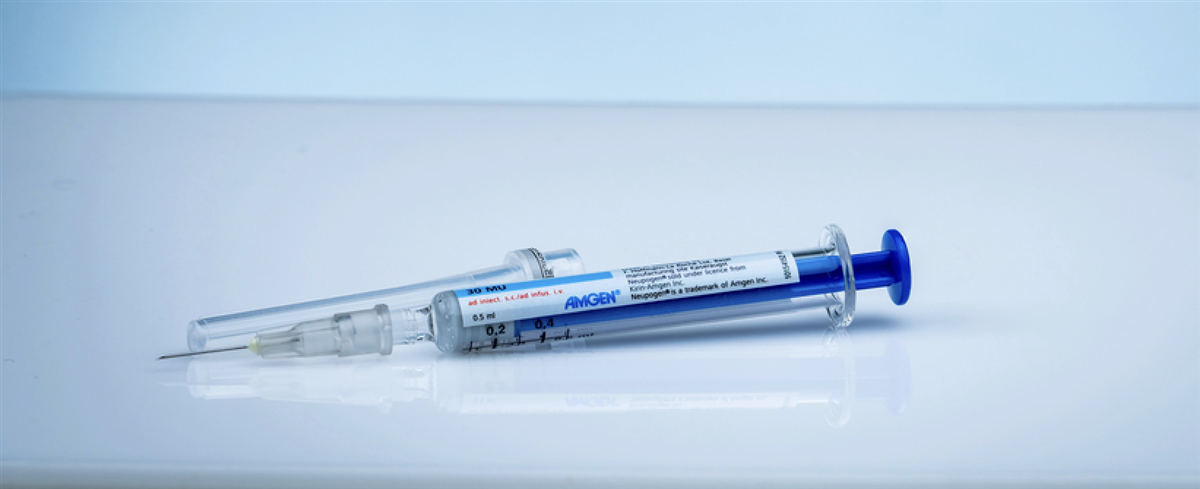
Amgen (NASDAQ: AMGN) is a biotechnology firm that has made its way into the weight loss treatment battle. The company’s shares have performed relatively well in 2024, providing a total return of 16%, outpacing its sector and the market. The Health Care Select Sector SPDR Fund (NYSEARCA: XLV) has returned 9%.
Let's start by exploring Amgen's main products and growth opportunities. Next, we'll review the Q2 2024 earnings report and highlight key aspects to watch around the firm.
Agmen's Products: Prolia and ENBREL are the Now, MariTide is the Future
Amgen operates as one reportable segment called Human Therapeutics. In 2023, 27% of its total revenue came from the U.S. and 28% from the rest of the world. Its top drugs are Prolia and ENBREL, which generated 15% and 14% of total revenue, respectively.
Prolia is a treatment for osteoporosis meant to help reduce the risk of bone fractures. ENBREL is a treatment for arthritis and plaque psoriasis. Prolia has already lost its patent protection in Europe, with expectations in a few countries. It will lose protection in the United States in just over six months, as well as in the rest of those European countries in 2025. This underscores Amgen’s need to find new drugs that will replace Prolia’s revenue generation.
Amgen is making one especially big bet in preparation for Prolia’s patent expirations. It is trying to enter the weight-loss drug market with its product, MariTide. It wants to compete with pharma giants Novo Nordisk (NYSE: NVO) and Eli Lilly (NYSE: LLY). Researchers are currently conducting Phase 2 Food and Drug Administration trials on the drug and expect to have results near year-end.
The drug has big potential benefits over competitors. First, it lasts in the bloodstream longer, which could allow patients to only need injections monthly. This could allow it to take market share from competitors Wegovy and Zepbound, which patients must travel to get weekly injections of. Researchers have also shown that individuals can keep weight off longer after stopping the use of the drug.
An important point of note on MariTide is that the mechanisms it uses to promote weight loss differ from those of Wegovy and Zepbound. Like those drugs, it activates the GLP-1 receptor, but it instead blocks the GIP receptor. This has raised concerns about its effectiveness compared to these drugs. However, Phase 1 trials show that it is effective in reducing weight. The highest dose lowered body weight by 14.5% in just 85 days of use.
The company seems confident that MariTide will eventually gain approval and that it needs to be ready for strong demand. In the Q2 2024 earnings call, Amgen Chief Financial Officer Peter Griffith said, “We have initiated activities to further expand MariTide manufacturing capacity. To support these initial efforts, we now expect capital expenditures (CAPEX) of $1.3 billion in 2024."
This is a significant increase from the $1.1 to $1.2 billion in CAPEX, which the firm forecasted previously.
Amgen Shares Fall on Mixed Earnings
Amgen’s adjusted earnings per share (EPS) were $4.97, slightly below expectations of $5.00. This was less than a 1% decrease from Q2 2023. Higher incremental expenses related to the company’s $28 billion acquisition of Horizon Therapeutics drove this.
Revenue was $40 million above expectations, at $8.39 billion, a 20% increase from the previous year. The company kept its full-year adjusted EPS guidance at a midpoint of $19.60; however, it narrowed the range by 10 cents on the upside and downside and raised its midpoint revenue guidance by $150 million.
In after-hours trading, Amgen's shares were down 2.1%.
What To Watch For: MariTide versus Oral GLP-1s
Amgen's prospects rely highly on MariTide's progression. Even though management feels confident, only 33% of drugs that pass Phase 1 trials also pass Phase 2. Investors should not get overly optimistic about MariTide’s potential. Updated weight loss drugs from Eli Lilly and Novo Nordisk are already in Phase 3 trials and could leapfrog Amgen's technology.
Orforglipron and oral semaglutide function similarly to Zepbound and Wegovy, but patients would take them as a once-daily pill. This would greatly diminish MariTide's convenience advantage over the current drugs. However, they may be less effective. One study showed they reduced weight by only 9% to 13% after 26 weeks.
Investors should monitor news around these oral GLP-1s and MariTide to discern which firm might have an advantage.
